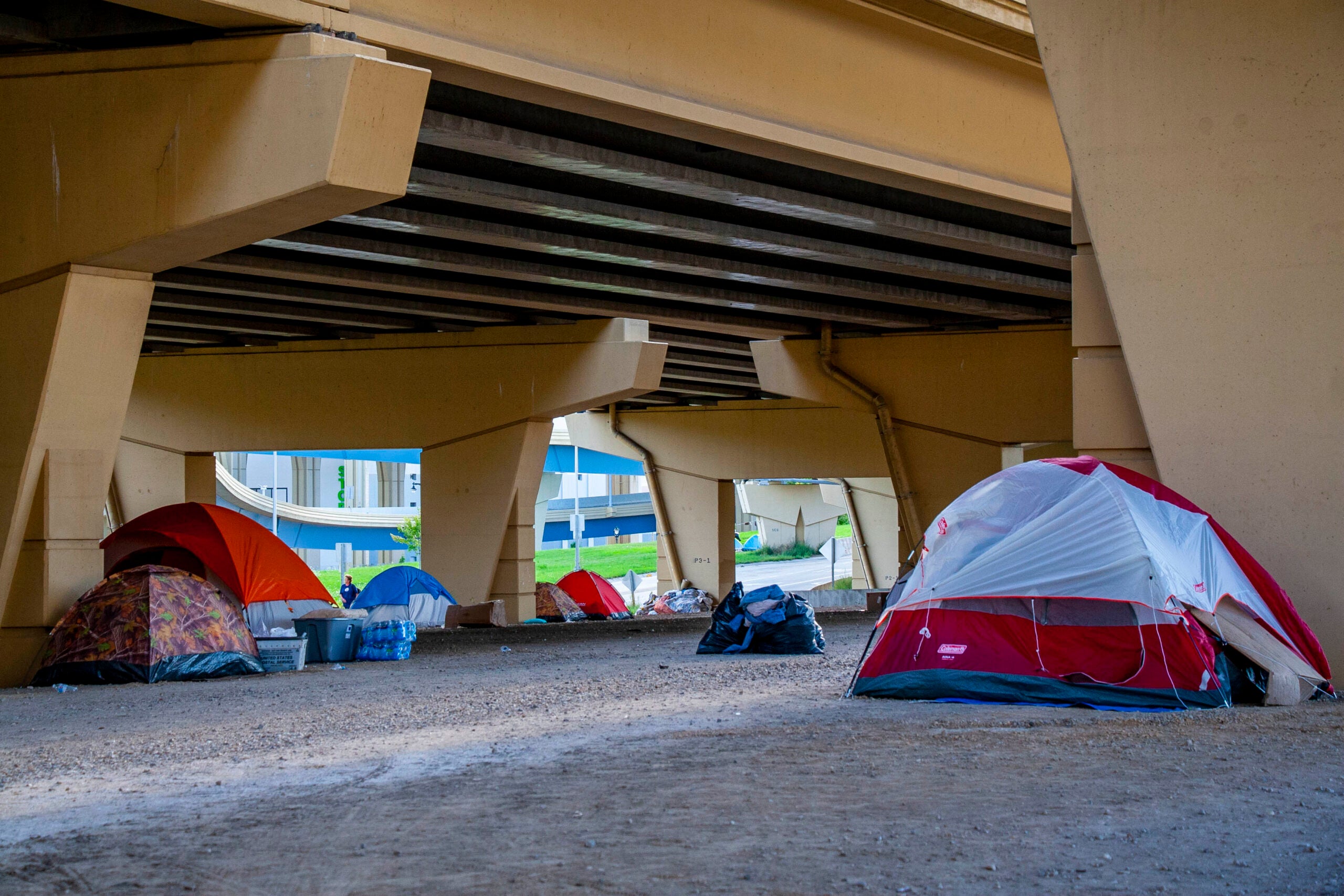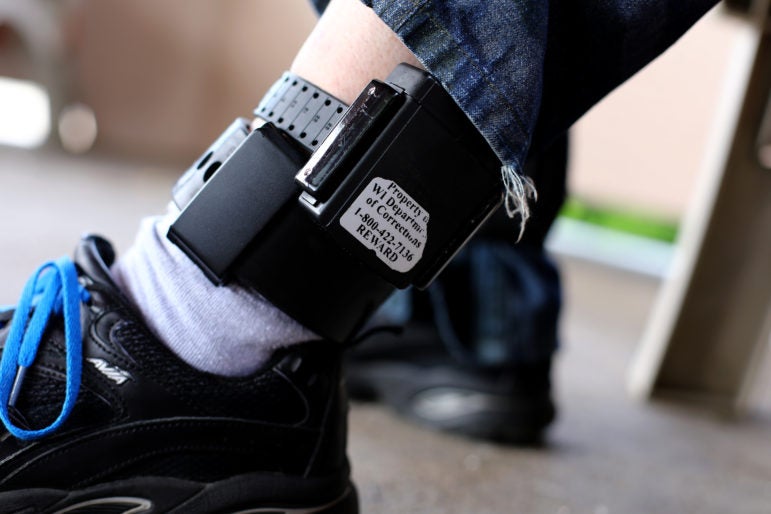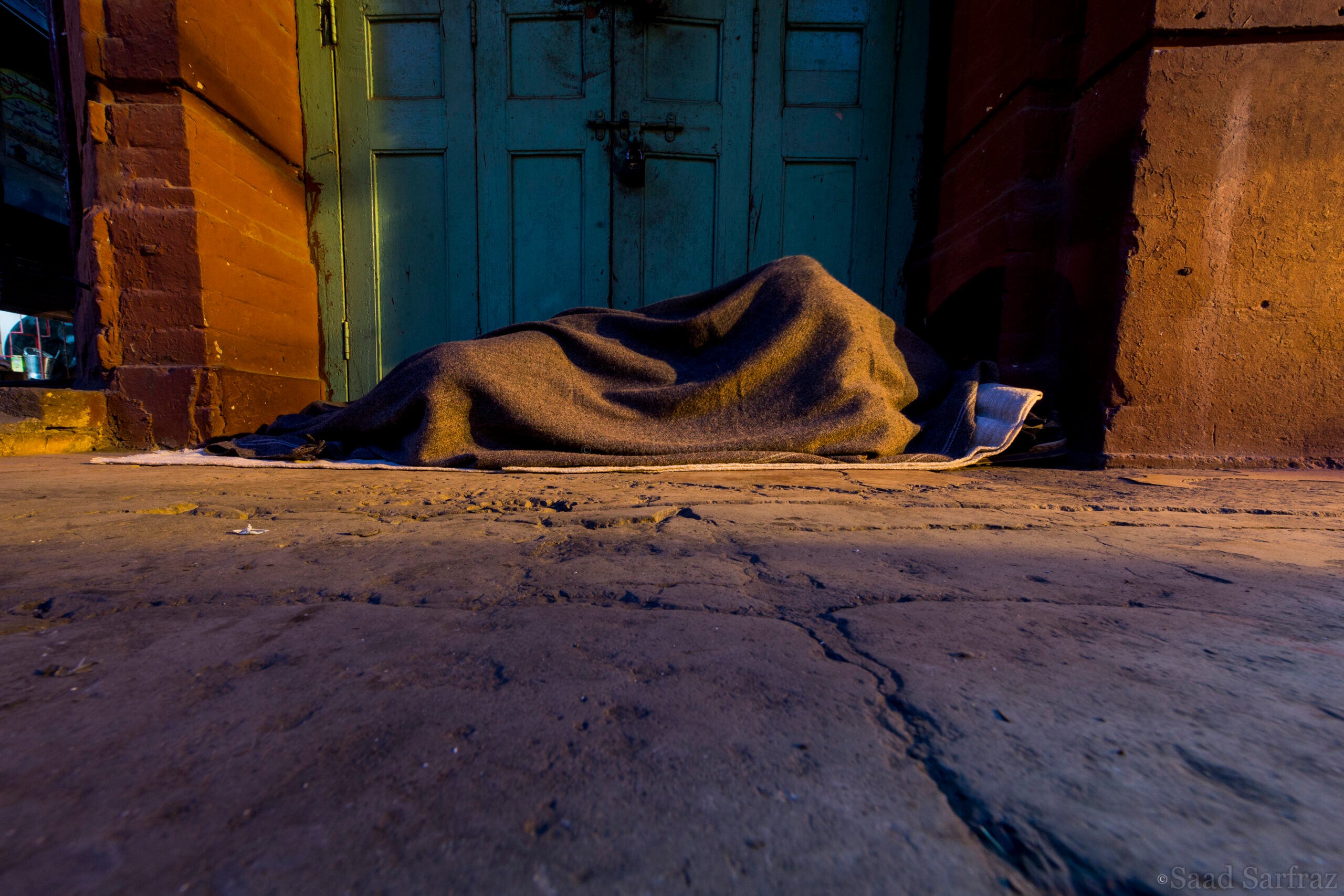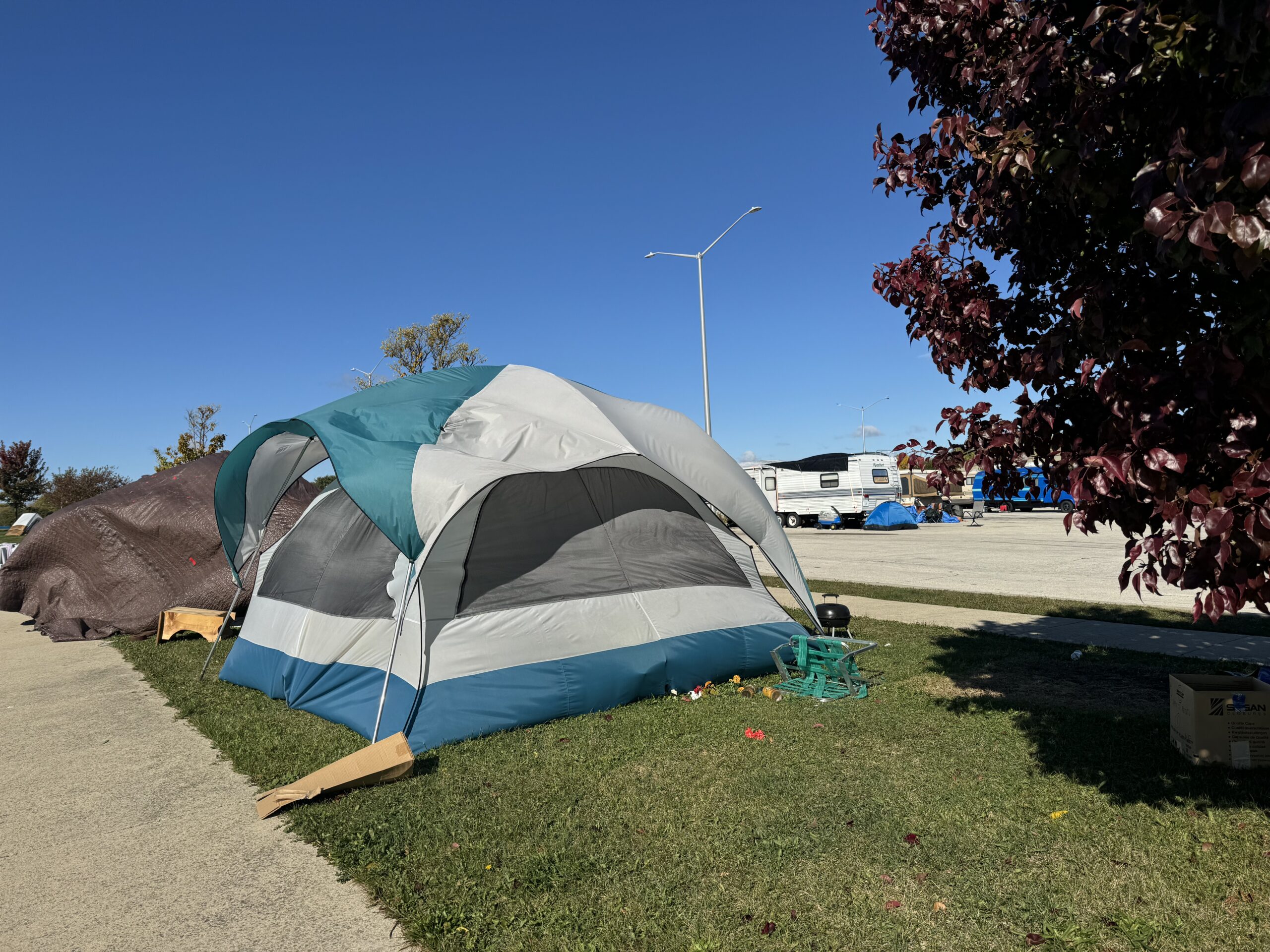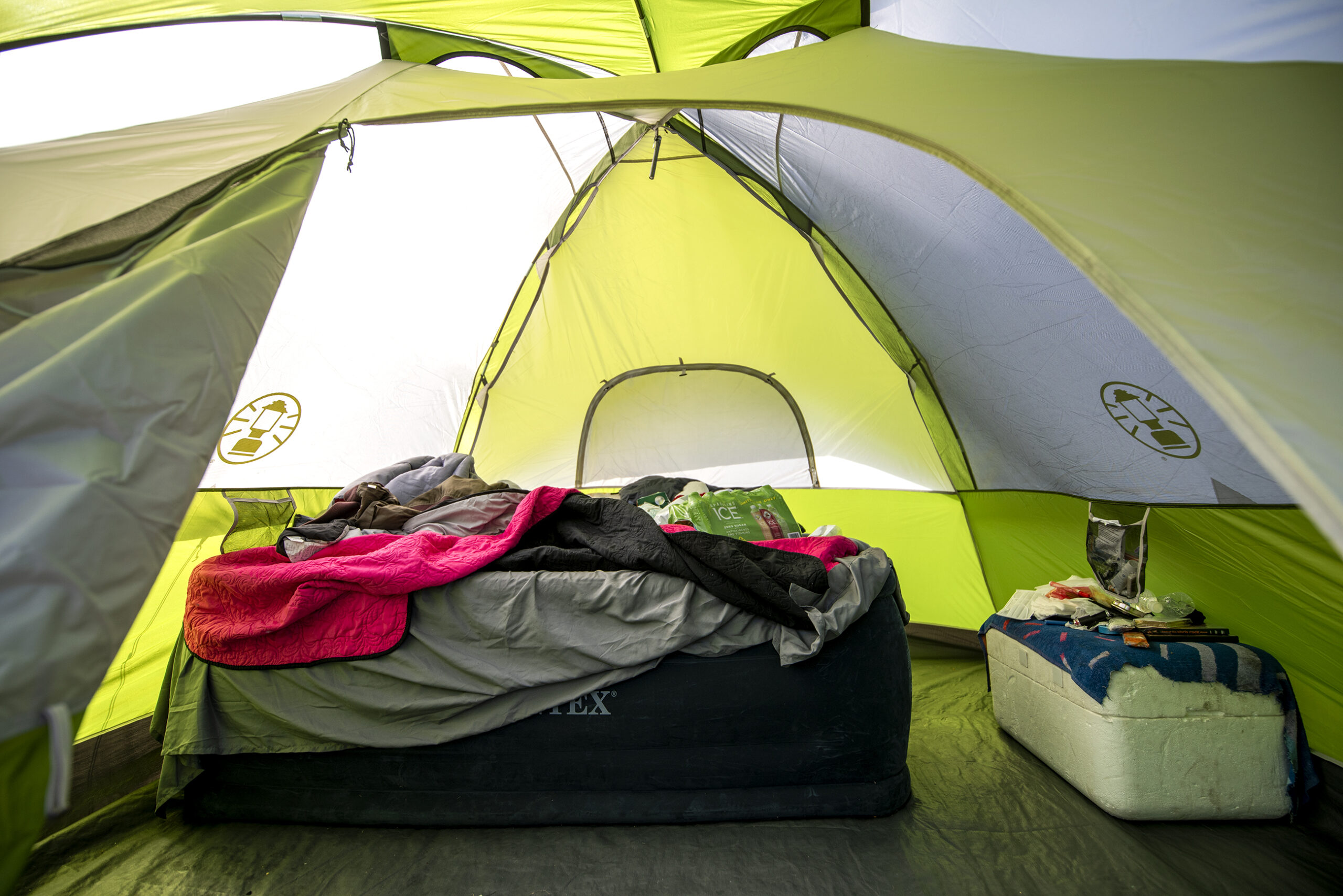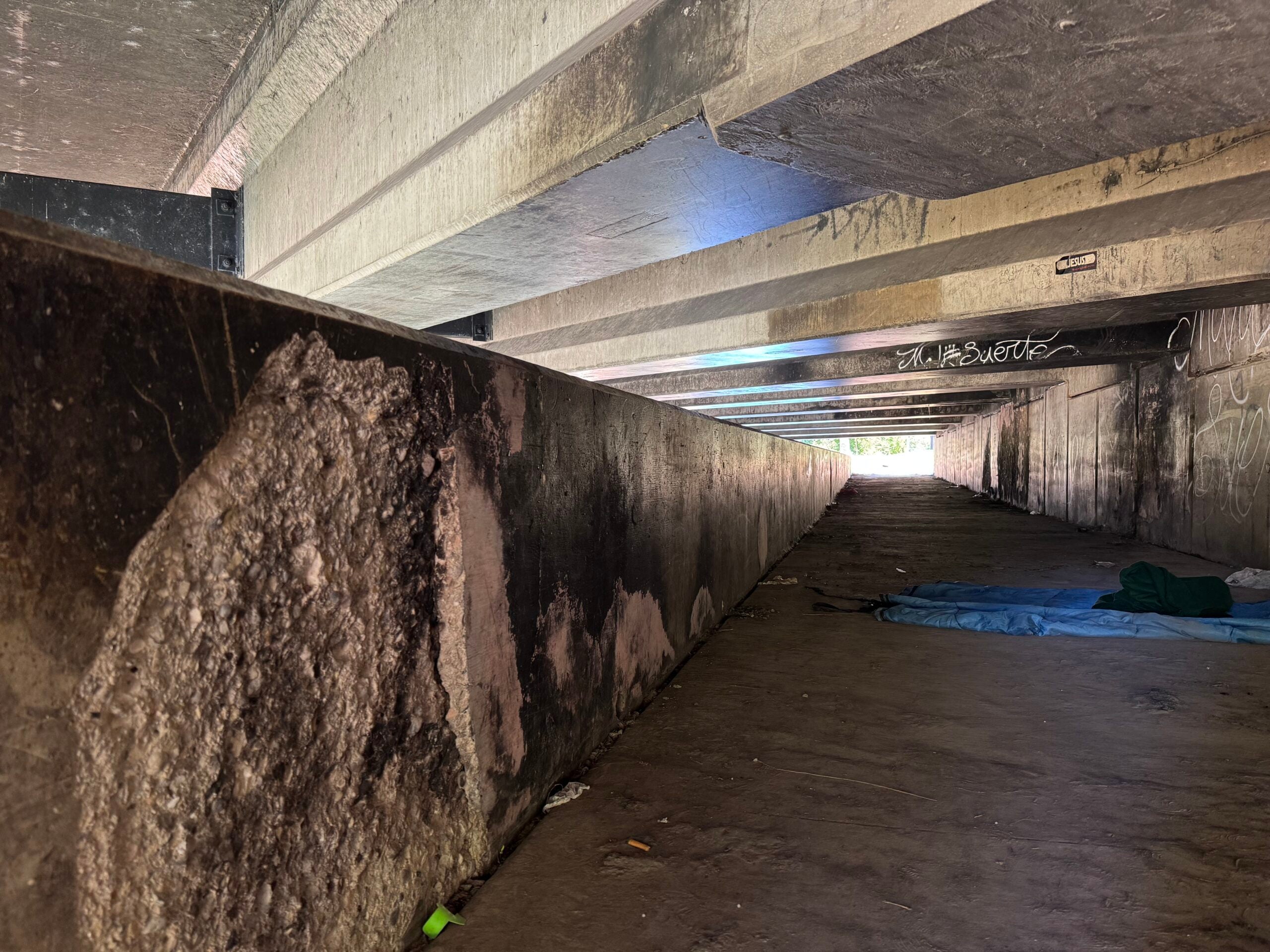A Republican bill in the state Legislature would withhold portions of state grants aimed at helping homeless people until certain benchmarks are met.
The bill also creates a criminal penalty for people found temporarily living or encamped on public property unless they are in a recreational campground or police-supervised shelter.
The bill, which received a hearing Tuesday, is based on model legislation from the Texas-based Cicero Institute.
News with a little more humanity
WPR’s “Wisconsin Today” newsletter keeps you connected to the state you love without feeling overwhelmed. No paywall. No agenda. No corporate filter.
It would have the state Department of Administration withhold 10 to 50 percent of grant funds for agencies addressing homelessness for at least six months. The rest of the money would only be paid if the recipient has met certain benchmarks.
An organization would have to show at least one of three criteria: it increased the number of people securing permanent housing, it increased the number of people securing part-time or full-time employment or it reduced the number of individuals and families returning to homelessness after participating in the program.
“If you can defund all the stuff that doesn’t work and fund the stuff that does work, I think we’d all be better off and have more beds available, and the money going further to help more people,” Rep. Alex Dallman, R-Green Lake, said at the hearing.
Dallman introduced a similar bill last session, but it did not win support in the Senate. Critics say similar legislation pushed in other states by the Cicero Institute seeks to criminalize homelessness.
The bill would also authorize the state’s Department of Administration to create police-supervised temporary shelters on public property.
Under the bill, a resident could petition their municipality to create such an encampment. If the municipality had more unhoused persons than the state average and failed to create an encampment within 12 months of receiving a petition, the DOA could come in and create one.
“I think what you’ve done here is designed something that will fail,” said Rep. Mike Bare, D-Verona. “I hope it’s not designed to fail. But it will, and it will cause harm.”
Devon Kurtz is the public safety policy director of the Cicero Institute. He defended the bill as a first step to solving homelessness.
“First, it sets clear metrics by which policymakers and the public can measure the success of its homelessness programs and holds those programs accountable for their performance,” Kurtz said. “Second, it creates a framework for municipalities to designate so-called structured camping facilities, which are safe, clean and affordable alternatives to people sleeping on the street.”
“Finally, it empowers law enforcement to remove street camps and direct homeless individuals to available shelter options,” he said.
Michael Basford, the director of the Interagency Council on Homelessness, disagreed.
“Rather than invest in providing permanent housing solutions for people experiencing unsheltered homelessness, this bill merely facilitates unsheltered homelessness,” Basford said.
Wisconsin Public Radio, © Copyright 2025, Board of Regents of the University of Wisconsin System and Wisconsin Educational Communications Board.

